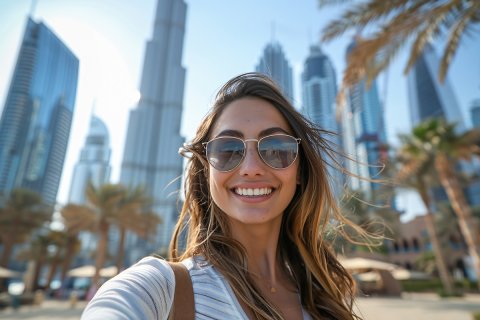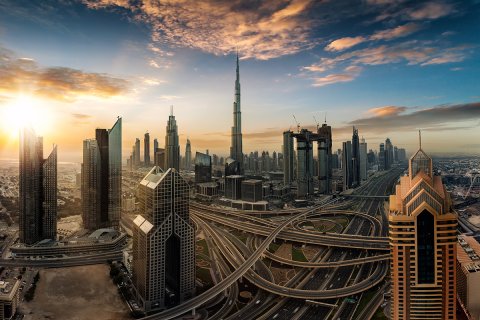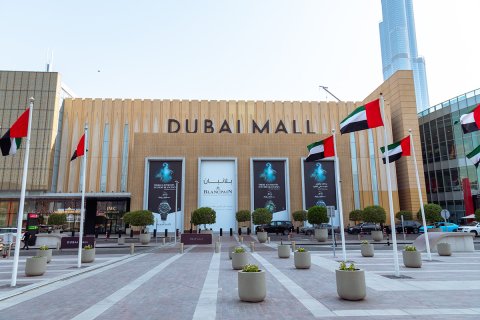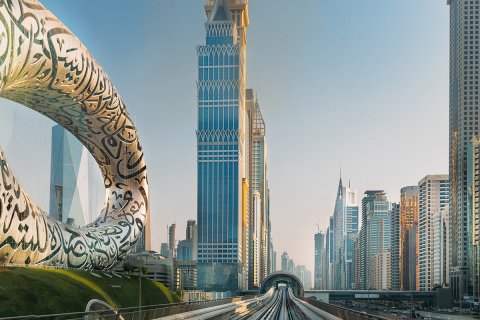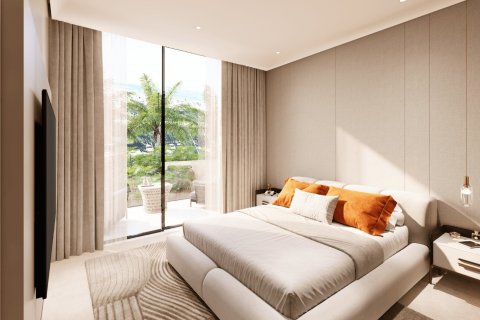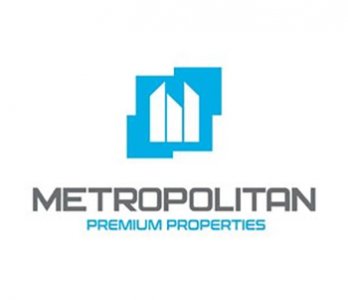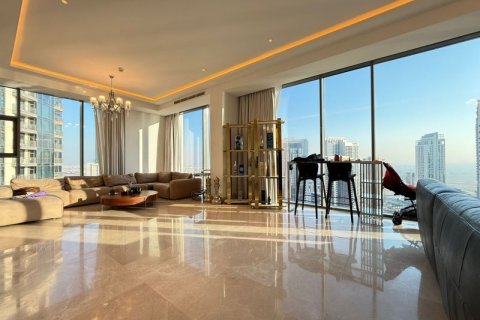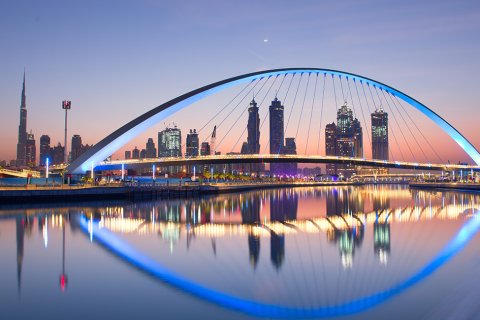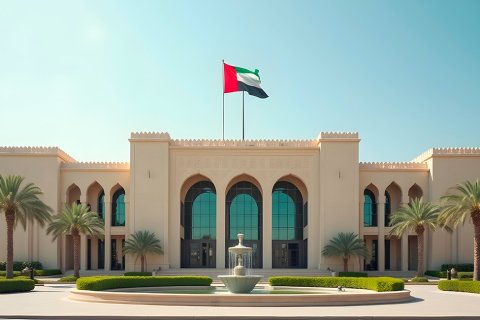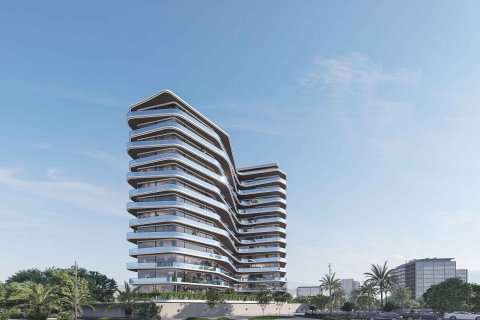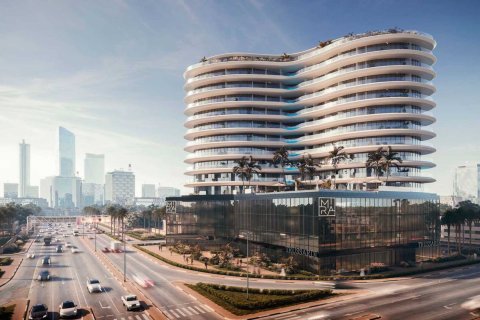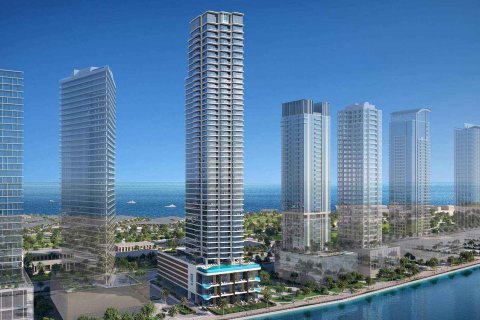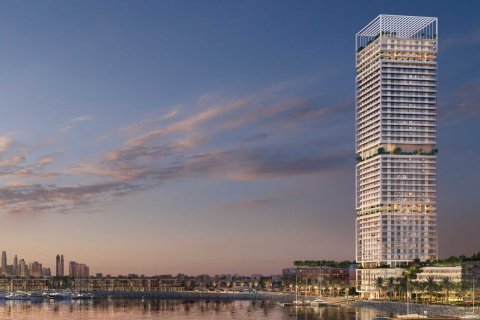
Dubai has emerged as a top destination for expatriates seeking a vibrant lifestyle, lucrative business opportunities, and a cosmopolitan environment. With its iconic skyline, luxurious lifestyle, and diverse cultural tapestry, the emirate offers a unique blend of tradition and modernity that appeals to people from all walks of life. The city's real estate market saw a 30% rise in property transactions in 2024, reflecting the growing demand. Whether you're drawn to the city for its tax-free income, world-class infrastructure, or the promise of endless sunshine, moving to Dubai can be a transformative experience. However, navigating the relocation process requires careful planning and understanding of the local customs and legal requirements. This guide will walk you through the essential steps to ensure a smooth and successful transition to your new life in Dubai, from securing a visa to settling into your new community.
Content
Pros and cons of living in Dubai
Relocation to Dubai offers a distinctive lifestyle with numerous advantages, but it also comes with challenges. Understanding these can help you make an informed decision about your move. By weighing these pros and cons, you can better prepare for the unique lifestyle in Dubai, ensuring a smoother transition into this dynamic city.
Pros:
- Tax-free income: One of the most attractive aspects of living in the city is the absence of personal income tax, which allows residents to keep more of their earnings.
- High standard of living: The Emirate is known for its luxurious lifestyle, with access to world-class amenities, shopping, dining, and entertainment options.
- Safety and security: The city is renowned for its low crime rates and strong emphasis on safety, making it a secure place for families and individuals.
- Cultural diversity: Home to a large expatriate community, it offers a multicultural environment where people from different backgrounds coexist harmoniously.
- Strategic location: Favorable geographical position makes it a convenient hub for travel, with easy access to Europe, Asia, and Africa.
Cons:
- Cost of living: While tax-free income is a perk, living costs here can be high, particularly for housing, education, and healthcare.
- Climate: The extreme summer heat can be challenging, with temperatures often exceeding 40 °C (104 °F), requiring the use of air conditioning.
- Cultural adjustment: Although Dubai is cosmopolitan, it is essential to respect local customs and traditions, which may require some adjustment for newcomers.
- Traffic congestion: Rapid urban growth has led to increased traffic congestion, which can impact daily commutes.
- Legal restrictions: The UAE has strict laws regarding alcohol consumption, public behavior, and dress codes, which may differ significantly from Western norms.
Moving to Dubai: checklist
- Research visa options: Identify the appropriate visa type for your situation—employment, investor, or family visa. Each has specific requirements and durations, so ensure you understand the eligibility criteria and application process.
- Secure a job or sponsorship: If you are moving for work, obtain a job offer from a Dubai-based employer who will sponsor your visa. Alternatively, a family member residing in the emirate can sponsor you, which is essential for your visa application.
- Apply for a visa: Submit your visa application through the UAE embassy or online. Required documents typically include a valid passport, recent passport-sized photographs, and proof of medical examination. Processing times can vary, so apply well in advance.
- Medical examination: Complete a medical test as part of the visa process. This usually includes screenings for communicable diseases. The results are necessary for your visa approval.
- Find accommodation: Research property in the UAE that fits your lifestyle and budget. Secure temporary or permanent housing before arriving to avoid last-minute hassles. Consider factors like proximity to work, schools, and amenities.
- Open a bank account: Choose a local bank and open an account to manage your finances. You'll need your passport, visa, and proof of residence. Having a local account is crucial for salary deposits and daily transactions.
- Arrange health insurance: Health insurance is mandatory. Ensure you have coverage that complies with local regulations. Your employer may provide this, or you can purchase a plan independently.
- Plan your move: Organize the logistics of moving your belongings. Hire a reputable moving company experienced with international relocations. Consider customs regulations for importing goods into the UAE.
- Register with local authorities: After arrival, register with the local authorities to obtain your Emirates ID. This ID is essential for opening bank accounts, signing rental agreements, and accessing government services.
- Familiarize yourself with local laws: Understand the local legal system, cultural norms, and social etiquette to ensure compliance and ease your integration into society. This includes laws on public behavior, dress codes, and alcohol consumption.
Immigration options and residency visas
| Employment visa | Eligibility: Issued to individuals who have secured employment in Dubai. Requirements:
|
| Investor visa | Eligibility: Designed for individuals investing in the country’s economy, often through real estate or business investments. Requirements:
|
| Family visa | Eligibility: Available for family members of UAE residents. Requirements:
|
| Student visa | Eligibility: Issued to students accepted into a UAE educational institution. Requirements:
|
| Tourist visa | Eligibility: For short-term visits for leisure or business. Requirements:
|
| Retirement visa | Eligibility: Available for retirees over 55 years old. Requirements:
|
Features of life in Dubai
Quality of life
The city offers a high quality of life, ranking as the top city for expats in 2024 with a composite score of 73.2. The city is known for its clean environment, modern infrastructure, and low crime rates, making it a comfortable and safe place to live. However, it all comes with a high cost of living.
Employment and business opportunities
Dubai's dynamic local market offers numerous business opportunities, especially in sectors like renewable energy, artificial intelligence, and healthcare. The UAE’s economy grew by 3.2% in 2024, reflecting a robust business environment. The real estate and e-commerce sectors continue to thrive, contributing significantly to the nation's GDP. With over 30,000 companies based in free zones and business-friendly policies such as 100% foreign ownership in specific sectors, Dubai attracts entrepreneurs and professionals from across the globe.
Medical services and healthcare in Dubai
Dubai's healthcare sector is experiencing rapid growth, with over 150 new healthcare facilities licensed in early 2024. The number of healthcare professionals has also increased significantly, reaching over 58,000 by 2023. The government mandates medical insurance for all residents, ensuring broad access to high-quality medical services. Moreover, Dubai is becoming a hub for medical tourism, particularly in fields like fertility, orthopedics, and dermatology. The Dubai Health Authority continues to push forward with ambitious goals to expand healthcare services, ensuring residents have access to state-of-the-art medical care.
Culinary and dining experiences
Dubai is rapidly becoming a culinary hotspot, with over 5,000 new restaurants opening in 2024 alone. The city offers extensive dining options, from traditional Emirati dishes to world-class international cuisine, including numerous Michelin-starred restaurants. With its diverse population, Dubai’s food scene celebrates global culinary traditions, drawing in food enthusiasts from around the world. The annual Dubai Food Festival further cements the city’s position as a gastronomic capital, attracting international chefs and showcasing Dubai’s rich multicultural heritage.
Safety and security
Dubai ranks as one of the safest cities globally, with a safety index of 83.8 in 2024. This results from the city’s strict laws, comprehensive surveillance, and low crime rates. Dubai’s legal system and extensive public safety measures ensure residents and visitors can enjoy a secure environment. The city’s low crime rate is also due to the strong presence of law enforcement and a focus on prevention, contributing to its reputation as a secure destination for both living and tourism.
Education and international schools
Dubai’s education sector continues to expand, with 39 new private institutions opening for the 2024–2025 academic year. The city is home to over 200 international schools, catering to the needs of its diverse expatriate community. These schools offer various curricula, including British, American, and the International Baccalaureate (IB), ensuring families have access to high-quality education. Dubai’s schools are recognized for their exceptional standards, with many ranking among the best globally. With continuous investments in education, the city is focused on providing world-class learning experiences for all students.
Real estate and housing market
With a 30% increase in property transactions in 2024, the surge is particularly evident in luxury housing, where demand for high-end apartments and villas continues to grow. Downtown Dubai, home to the Burj Khalifa, saw a 6.54% increase in rent prices in 2024, reflecting the city’s increasing appeal for upscale living. With plans for urban development as part of the UAE’s Vision 2040, demand for both sustainable and luxury real estate is expected to rise even further in the coming years.
Taxation policies
Dubai does not levy income tax on individuals, making it an attractive destination for expatriates. However, businesses with earnings above AED 375,000 are subject to a 9% corporate tax, introduced in 2024. Additionally, a 5% Value-Added Tax (VAT) applies to most goods and services across the country, contributing to the UAE’s tax revenue while maintaining its favorable business environment. These taxation policies make Dubai an appealing location for both individuals and companies seeking a competitive financial landscape.
Climate and weather conditions
Dubai experiences extreme heat, with summer temperatures reaching up to 45°C (113°F). The city’s desert climate, characterized by high temperatures and minimal rainfall, makes air conditioning essential to daily life. Recent climate projections suggest that the region will see a 30% rise in rainfall in the coming decade, potentially altering local weather patterns. Despite the heat, Dubai enjoys year-round sunshine, with mild winters making it an appealing location for tourists and residents alike.
Transportation and infrastructure
Dubai is heavily investing in infrastructure, with AED 16 billion allocated to development projects between 2024 and 2027. These projects include expanding road networks and improving public transportation systems like the Dubai Metro. The city also embraces sustainable transportation solutions, preparing for further urban growth. As part of its Vision 2040, Dubai is planning numerous new infrastructure projects to support its rapid development and ensure a seamless experience for both residents and visitors.
Cultural diversity and lifestyle
Dubai is a melting pot of cultures, with over 200 nationalities calling the city home. This diversity is reflected in the city’s dynamic cultural and lifestyle offerings, including global events like the World Cities Culture Summit. Dubai's multicultural environment fosters an atmosphere of innovation, making it a global hub for cultural exchange. The city continues to host a variety of international art, music, and film festivals, further showcasing its commitment to celebrating diversity and creativity.
Legal and social norms
Dubai’s legal system is based on Islamic principles, and the city has strict regulations regarding public behavior. Public displays of affection are regulated, and certain dress codes reflecting the city's cultural values must be observed in public spaces. While the city is modern and cosmopolitan, respect for local traditions and laws is paramount for residents and visitors. These regulations help maintain Dubai’s unique cultural identity and ensure that the city remains a harmonious place for its diverse population.
Cost of living in Dubai: what to expect
Dubai is known for its luxurious lifestyle and high cost of living. In 2024, the average monthly expenses for a single person are approximately AED 4,018 ($1,094) without rent. When talking about a family of four, costs can range from AED 22,160 to 37,460 monthly, including housing, utilities, and transportation.
Housing costs and rental prices
Housing is a major component of the cost of living when you move to Dubai, with prices varying significantly based on location, property type, and size. Here's a more detailed breakdown:
- Apartments: In popular areas like Downtown Dubai and Dubai Marina, a 1-bedroom apartment can cost between AED 70,000 to 120,000 annually. In more affordable neighborhoods like Deira or Al Nahda, prices range from AED 42,000 to 70,000 per year.
- Villas: For those seeking more space, villas in areas such as Arabian Ranches or Jumeirah can range from AED 180,000 to 350,000 annually, depending on the size and amenities.
- Additional costs: Renters should also consider additional costs such as security deposits (typically 5% of the annual rent for unfurnished and 10% for furnished properties) and agent fees (usually 5% of the annual rent).
- Utilities and services: Monthly utility costs, including electricity, water, and cooling, can range from AED 600 to 1,200, depending on the size of the property and usage.
Cost of living in Dubai with family
- Education: School fees can be substantial, especially for international schools. Annual tuition can range from AED 20,000 to 100,000, depending on the school's reputation and curriculum.
- Healthcare: While the emirate offers high-quality healthcare, it can be expensive without insurance. A family health insurance plan can cost between AED 10,000 to 20,000 annually.
- Groceries and dining: Monthly grocery bills for a family of four can range from AED 2,000 to 3,500, depending on dietary preferences and shopping habits. Dining out at mid-range restaurants typically costs about AED 150 for a meal for two.
- Transportation: Families often require multiple vehicles, adding to costs. Purchasing a car involves insurance, registration, and fuel costs, which can add up to AED 1,500 to 2,500 monthly.
- Childcare and activities: Families with young children might incur additional costs for daycare, ranging from AED 2,000 to 4,000 per month, and extracurricular activities that vary widely in price.
Daily expenses
| Groceries | When you live in Dubai, you can enjoy various supermarkets and local markets, where prices can vary. A weekly grocery bill for essentials such as fresh produce, dairy, and meats can range from AED 1,025 to 2,250, depending on the store and brand preferences. |
| Dining out | The city is known for its diverse culinary scene. Dining at budget-friendly restaurants might cost around AED 60 per person, while mid-range dining experiences can start at AED 150. |
| Transportation | Public transport here is efficient and affordable: a monthly metro pass costs around AED 300. Taxis are also widely available, with fares starting at AED 12 for a basic ride. |
| Entertainment and leisure | Entertainment options like cinema tickets typically cost around AED 45 to 55. For those interested in fitness, gym memberships can range from AED 200 to 500 per month. |
| Personal care | Regular personal care items such as toiletries and household cleaning products can add approx. AED 500–1,000 to monthly expenses. |
Buying vs. renting in Dubai: which is better
The decision to buy or rent an apartment or villa in the UAE hinges on various factors, such as financial goals, lifestyle preferences, and the duration of stay. Both options have advantages and disadvantages.
Renting benefits
- Flexibility: Renting allows one to move without the long-term commitment of owning a property, making it ideal for expats or those with uncertain job stability.
- Lower initial costs: Renters avoid the hefty down payments and transaction fees associated with purchasing property.
- Maintenance-free living: Rental agreements often include maintenance, reducing the hassle and cost of repairs.
Buying benefits
- Investment potential: Buying property can be a lucrative investment, with potential for capital appreciation and rental income.
- Stability and control: Homeownership provides stability and the freedom to modify the property to suit personal tastes.
- Residency visa eligibility: Purchasing property valued at AED 750,000 or more may qualify the owner for a residency visa, providing additional security and benefits.
Best places to live in Dubai: neighborhoods overview
Family-friendly areas
- Arabian Ranches boasts spacious villas and excellent community facilities to live and work in Dubai. It provides a serene environment with parks, schools, and golf courses, making it perfect for families seeking a suburban lifestyle.
- Jumeirah: This coastal area features beautiful beaches, parks, and a variety of schools and nurseries, making it a top choice for families. The neighborhood offers a mix of villas and townhouses, ensuring ample space for growing families.
- Mirdif: Offering a blend of modern and traditional housing options, Mirdif is popular among families for its community-centric environment, numerous parks, and proximity to shopping centers and schools.
Popular expat areas
- Dubai Marina: Known for its stunning waterfront views and bustling lifestyle, it attracts expats with its mix of high-rise apartments in the UAE, restaurants, and entertainment options. The area is well-connected by public transport, making it convenient for professionals.
- Jumeirah Lakes Towers (JLT): Offering a diverse range of apartments and a lively community, JLT is favored by expats because of its affordability and proximity to business hubs. The area boasts numerous dining and leisure options, contributing to its popularity.
- Downtown Dubai: As the heart of the city, it is a sought-after location for expats who enjoy urban living. With iconic landmarks like the Burj Khalifa and Dubai Mall, it provides a dynamic lifestyle with easy access to work and leisure.
Affordable neighborhoods for expats
- Al Nahda: Situated on the border with Sharjah, Al Nahda is known for its affordable rental prices and spacious apartments. The area is well-serviced by public transport and offers a range of amenities, making it a practical choice for cost-conscious expats.
- International City: With its themed clusters and affordable housing options, it is popular among expats looking for budget-friendly accommodations. The area provides basic amenities and easy access to major roads.
- Deira: As one of Dubai's oldest neighborhoods, Deira offers a mix of traditional and modern living spaces at competitive prices. Its vibrant markets, cultural landmarks, and convenient location make it an attractive option for expats seeking affordability and authenticity.
Moving to Dubai with family: essential tips
When considering immigration to Dubai with your family, understanding the local culture and regulations is crucial. Ensure your children's vaccinations align with UAE requirements, which is essential for school admissions. Consider the climate and invest in UV protection clothing and high-SPF sunscreen for outdoor activities. Familiarize yourself with the local driving rules and consider enrolling in a defensive driving course, as traffic can be challenging. Lastly, explore community groups online to ease the transition and connect with other expat families.
Essential tasks for your first week in Dubai
Upon arriving in the city, prioritize setting up your essentials. First, obtain a local SIM card to stay connected. Next, open a bank account to manage finances efficiently. Register with the General Directorate of Residency and Foreigners Affairs to get your Emirates ID, a crucial identification document. Familiarize yourself with the local public transport system or explore car rental options if needed. Lastly, locate nearby grocery stores and healthcare facilities to ensure you have access to daily necessities and medical support.
Conclusion: how easy it is to move
Thanks to its well-established infrastructure, moving to Dubai for permanent residence is relatively straightforward. The city offers a streamlined process for obtaining necessary documents like visas and Emirates IDs. With a robust public transport system and a welcoming expat community, settling in is convenient. However, understanding local customs and regulations is key to a smooth transition. While the initial setup might require some effort, the city's amenities and vibrant lifestyle make the move rewarding and manageable.
Frequently asked questions
People move here for various reasons, including job opportunities, tax-free income, a high standard of living, and a vibrant multicultural environment.
No, you do not need to learn Arabic. English is widely spoken and is the primary language used in business and daily interactions.
Yes, It is considered a very safe place to live, with low crime rates and strict law enforcement. The city boasts safety and security measures.
The average cost of living can vary but is generally high compared to many other cities. Key expenses include housing, transportation, and schooling, which can significantly impact your budget.
When moving, pack lightweight clothing suitable for the hot climate, formal attire for work, and modest clothing for public places. Don't forget important documents, electronics, and any personal items that make you feel at home.
Yes, you can bring your pet, but you must comply with the UAE's import regulations, which include vaccinations, microchipping, and obtaining an import permit. It's advisable to check the latest guidelines before moving.
Living here can be worth it, especially for those working in Dubai, as it offers excellent career opportunities, a tax-free income, and a high standard of living despite the high cost of living and hot climate.





